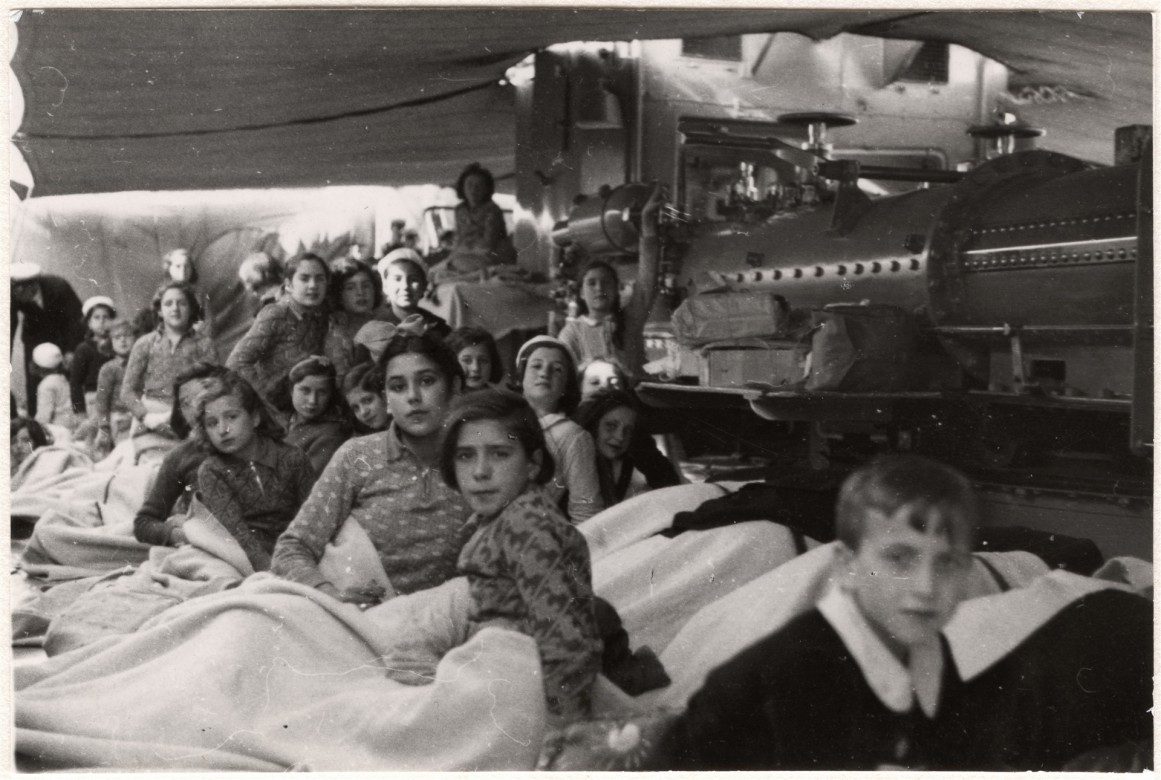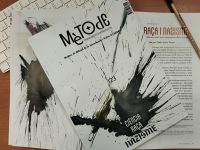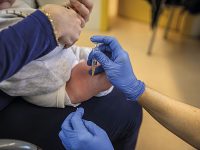

Photo: Biblioteca Digital Hispánica
Mercedes Maestre Martí (1904-1989) was a socialist doctor and paediatrician during the Second Spanish Republic. She developed exceptional activism for social reform and the right to health. She graduated in medicine from the University of Valencia (1928) and earned her PhD in paediatrics from the Central University of Madrid. As a university student, Maestre participated in the actions of the University School Federation (FUE) against the dictatorship of Primo de Rivera, together with Emilio Navarro Beltrán, also a medical student and her life partner. Navarro Beltrán was an anarchist, a member of the CNT, and served as provincial health advisor since 1937.
As a consequence of supporting the struggles of the miners and the frustrated revolution in Asturias in 1934, Maestre was imprisoned. She was the president of UGT’s medical union in Valencia, to which the phthisiologist José Chabás Bordehore and José Estellés Salarich, general inspector of health, also belonged when the Popular Front won the elections in 1936. Maestre practiced as a pediatrician and was also involved in social and health activism in centers, journals, and publications, like other doctors of the time. She was a collaborator of Revista de Higiene y Tuberculosis (1905-1937), where she addressed issues related to children’s health. Mercedes Maestre was a tireless activist and the president of the League for Sexual Reform. She delivered courses and lectures in workers’ centers and libertarian athenaeums. She also worked as a medical doctor for the Transport Union of El Grao, joined the CNT, and in October 1936 she presided over the Social Assistance Board of Valencia, created by the Popular Front.
«Mercedes Maestre developed exceptional activism for social reform and the right to health»
The first woman to become Minister of Health in a government in Spain, the anarchist Federica Montseny, was appointed by Juan Negrin when the government moved to Valencia in 1936. In a later testimony, Montseny stated: «When I took charge of the Ministry [of Health] I made an effort to look for suitable personnel, with the desire to promote the presence of women in this political world, in which women had almost always been marginalised. I appointed Dr. Mercedes Maestre as my under-secretary…» From her position, and in the very harsh conditions imposed by the war, Maestre worked mainly on the evacuation of refugees and on child welfare and health care. At the request of the minister, she also drafted a decree on the voluntary interruption of pregnancy, like the one approved by the Catalan government, promoted by Félix Martí Ibáñez. However, Mercedes Maestre’s decree was never passed by the Government of the Republic.
Further into the war, like so many other doctors, she was militarised. She held the rank of military captain in the Army Blood Transfusion Service, which depended on Professor of Physiology José Puche Álvarez, who was then Rector of the University of Valencia. Maestre played a very important role in January 1938 in the transport of blood destined to the hospital of Garaballa (Teruel), to perform transfusions in very critical moments of the war in the front of Teruel. She remained in Valencia until the end of the war.
On 1 March 1939 she left by boat for Oran, and from there to France, where she was admitted to a refugee camp in Saint-Étienne. After three years of French exile, in 1942 she embarked with her companion on the Nyassa, bound for Veracruz (Mexico). She stayed in that country for two decades, working as a paediatrician for the exiles in the Valencia Regional House, the Asturias Centre, and the Mundet Club. In exile she continued to work for the Socialist Party. Maestre, together with Navarro Beltrán, returned to Valencia at the beginning of the 1960s, and resumed paediatric medicine in 1964. She died in anonymity in 1989.





